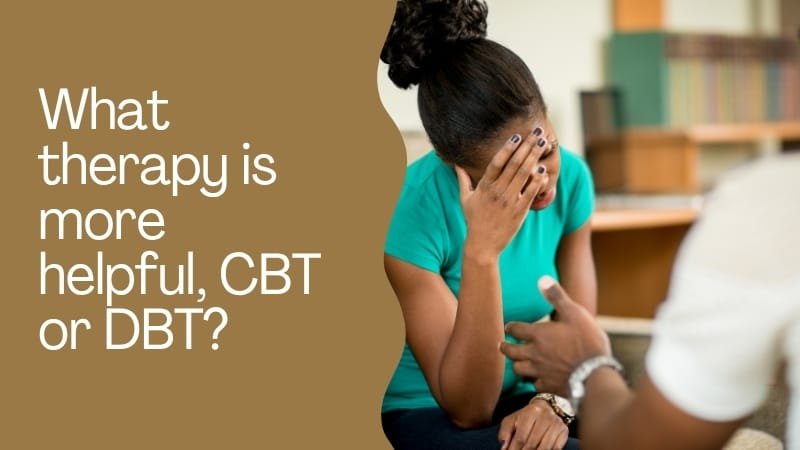When it comes to mental health treatment, two of the most commonly recommended therapies are Cognitive Behavioral Therapy (CBT) and Dialectical Behavior Therapy (DBT). While both are evidence-based and effective for a variety of mental health issues, they are designed to target different problems and use different approaches. So, which one is more helpful? The answer depends on the person, the issue at hand, and the goals of therapy.
What is Dialectical Behavioral Therapy?
Understanding DBT vs. CBT might be aided by knowing the answer to the question, “What is dialectical behavioral therapy?” The primary goal of dialectical behavioral therapy is to assist patients in improving their behavior patterns and balancing their emotions.
The first step in this type of treatment is to pinpoint the feelings and thinking patterns that might be causing the suffering. The patient is then taught how to integrate these concepts with more healthful ones, resulting in a more positive perspective overall.
DBT just assists patients in developing a more balanced worldview rather than attempting to alter their behaviors and thinking completely. Therapists frequently help patients develop behavioral skills during DBT sessions, which they can then use in group settings.
Key Features of DBT:
- Emphasizes acceptance and change
- Focuses on emotion regulation and distress tolerance
- Teaches skills in four key areas: mindfulness, distress tolerance, emotion regulation, and interpersonal effectiveness
- Often includes individual therapy, group skills training, and phone coaching
Conditions DBT Helps With:
- Borderline Personality Disorder (BPD)
- Self-harm behaviors
- Suicidal thoughts and actions
- Eating disorders
- PTSD
- Substance abuse (in some cases)
DBT is often more intensive than CBT and involves a greater time commitment. It’s especially effective for people who feel overwhelmed by emotions or have difficulty managing relationships.
Which Is More Helpful, CBT or DBT?
There isn’t a single, universal solution. Though they fulfill different purposes, both therapies are immensely beneficial.
Select CBT if:
- You’re looking for a short-term, structured method
- You’re battling phobias, depression, or anxiety.
- You favor therapy that is rational and focused on fixing problems.
- You want to understand how your thoughts affect your feelings and actions.
Select DBT if:
- You have trouble controlling your emotions or have strong feelings about something.
- You’ve struggled with BPD, suicide thoughts, or self-harm.
- You require assistance in creating more wholesome relationships.
- You’re willing to study techniques for acceptance and mindfulness.
What is the cost of CBT and DBT?
CBT and DBT session costs vary based on a number of criteria, including:
- Therapy type: Because DBT certification necessitates additional training, DBT therapists may charge more.
- Treatment duration: Due to its greater duration and two weekly sessions rather than one, DBT is typically more costly.
- Therapist type: Master’s-level therapists typically charge less than psychiatrists and psychologists.
- Location: Urban therapists typically bill more than their suburban or rural counterparts.
There are ways to make therapy more cheap if money is an issue. You might think about the following options:
- Look for a therapist who is covered by your insurance.
- If your insurance does not cover the therapist you are seeing, use the out-of-network benefits.
- Find out if a therapist charges on a sliding scale according to income.
- Collaborate with a pre-licensed therapist or intern under the supervision of a more seasoned clinician.
- To pay for sessions, use money from your health savings account (HSA) or flexible spending account (FSA).
- Use Open Path Collective, a network of therapists who provide services at a reduced cost, to find a therapist.
Final Thoughts
When deciding between CBT and DBT, the most necessary factor is your personal needs and goals. CBT can be more helpful if you’re looking for a straightforward way to tackle anxiety or depression. DBT could be a better fit if you’re dealing with intense emotions, unstable relationships, or self-destructive behaviors.


